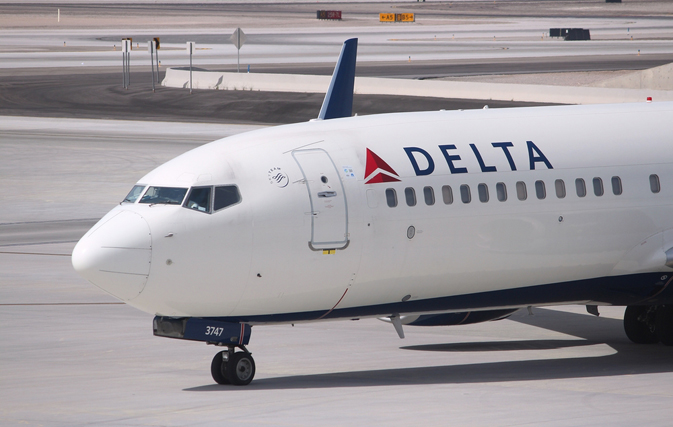ATLANTA — It’s clear just how crazy these times are when a cash burn rate of US$50 million per day is actually good news, compared to $100 million per day. The biggest airline in the world, Delta Air Lines, announced its first quarter results today and they included a $534 million loss in Q1 and an outline of decisive actions the carrier has taken to survive the coronavirus crisis in Q2 and beyond.
Every airline in the world has been hit hard by the coronavirus pandemic and its travel restrictions. As of early April, 96% of global destinations had imposed travel restrictions in response to the pandemic. Approximately 90 destinations have completely or partially closed their borders to tourists while another 44 are closed to certain tourists depending on country of origin.
“These are truly unprecedented times for all of us, including the airline industry. Government travel restrictions and stay-at-home orders have been effective in slowing the spread of the virus, but have also severely impacted near-term demand for air travel, reducing our expected June quarter revenues by 90%, compared to a year ago” said Delta CEO Ed Bastian.
“Delta is taking decisive action to prioritize the safety of our employees and customers while protecting our business and bolstering liquidity.”
Delta’s chief financial officer, Paul Jacobson, says that with the significant impact of COVID-19 on Delta’s revenue, the airline was burning through $100 million per day at the end of March. “Through our decisive actions, we expect that cash burn to moderate to approximately $50 million per day by the end of the June quarter. The decade of work we put into the balance sheet to lower debt and build unencumbered assets has been critical to our success in raising capital and we expect to end the June quarter with approximately $10 billion in liquidity.”
To address the challenges of COVID-19, the company is taking the following actions:
- Making significant capacity reductions for the June quarter versus prior year with total system capacity down 85%, including domestic down by 80% and international capacity down by 90%
- Adopting new cleaning procedures on all flights, including fogging on all aircraft overnight and sanitizing high-touch areas like tray tables, entertainment screens, armrests and seat-back pockets before boarding
- Taking steps to help employees and customers practice social distancing, including blocking middle seats, pausing automatic upgrades, modifying boarding process and moving to essential meal service only
- Extending 2020 Medallion Status an additional year, rolling Medallion Qualification Miles into 2021, and extending Delta SkyMiles American Express Card benefits and Delta Sky Club memberships
- Giving customers flexibility to plan, re-book and travel including extending expiration on travel credits to two years
With regular travel all but grounded, Delta has been offering free flights to medical professionals fighting COVID-19 in the hardest-hit areas of the U.S., and chartering international cargo-only flights to provide healthcare workers with materials needed to do their jobs.
Like Canada’s airlines and other airlines around the world, Delta has also been operating repatriation flights, to bring back more than 28,000 people displaced by the virus to the U.S.
Delta says it expects June 2020’s quarter total expenses to decline by approximately 50%, or $5 billion, over prior year due to reduced capacity, lower fuel and cost initiatives, including parking more than 650 aircraft, consolidating airport facilities, instituting a company-wide hiring freeze and offering voluntary leave options with 37,000 employees taking short-term unpaid leave, and reducing salary expense through pay reductions for executive management and reduced work schedules across the organization.
The airline is also shoring up its financial position with a top priority focus on preserving cash and enhancing liquidity. The company has raised $5.4 billion of capital since early March, among other measures. Along with other companies and individuals throughout the U.S. Delta will also benefit from the U.S. government’s $2.2 trillion Coronavirus Aid, Relief and Economic Security (CARES) Act relief package, with payroll support and more.

